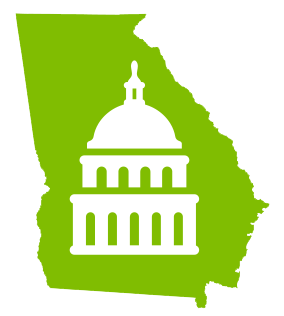
A Digital Newsletter from the Georgia Council on Developmental Disabilities • March 2022
The Georgia Council on Developmental Disabilities newsletter from keeps you up-to-date on the latest news from what’s happening with public policy in Georgia to COVID-19 updates to upcoming events. This issue has a special feature on how to celebrate and advocate during Developmental Disabilities Month.
In This Issue:
- A Message from the Executive Director
- Public Policy for the People
- COVID-19 Update
- Welcome to GCDD
- Inclusive Post Secondary Education
- Developmental Disabilities Awareness Month
- Calendar Spotlight

A Message from the Executive Director
As this newsletter goes to print, we are at day 25 of the 2022 legislative session; with only 15 more days to go. One of the ways that the Georgia Council on Developmental Disabilities (GCDD) will determine the success of the Session is by how many letters, emails, and phone calls legislators receive. Thanks to you taking time to use the GCDD Phone2Action system, our first two advocacy days had almost 1,000 emails sent to legislators. This is incredible! We know that many legislators determine their support for legislation and budget items based on the number of times constituents contact them.
Don’t forget to attend the final Advocacy Day on March 16, 2022. We will focus on advocating for increased employment opportunities. This means additional dollars for supported employment. It also means changing policies, such as the one that allows people with developmental disabilities to be paid less than minimum wages. It is time that we end the practice of paying subminimum wage through the 14C program and insist that all people get paid a living wage.
Advocacy is about relationships you need to build relationships with your elected officials and others running for elected office. Remember this is an election year. Take the time to educate those running for office about issues such as the waiting list, the need for direct support people to get paid a living wage, and that employment is important for you and your loved one.
Remember that March is Developmental Disabilities Awareness Month. This is a time when we recognize and celebrate that struggles you go through every day. We recognize that disability rights are civil rights. And we recognize that the long-term care system of supports must do a better job of meeting the needs of individuals with developmental disabilities.
We hope that these articles plus updates on what is happening in Georgia will provide you with new and useful information. Let us know your thoughts and comments about the newsletter by writing to .
Eric E. Jacobson, GCDD Executive Director
Nick Perry, Chairman

Public Policy for the People
Public Policy for the People provides public policy updates as it pertains to people with disabilities here in Georgia.
Fellow advocates, it is hard to believe, but we are more than halfway through Georgia’s 2022 legislative session and quickly approaching Crossover Day on March 15th and the end of session on April 4th! We are seeing an increase in activity under the Gold Dome as legislators, lobbyists, and advocates work to get their priorities passed through one chamber before the 15th so that bills still have a chance of becoming law in 2022.
As a reminder, any bill that does not become law this year will have to be reintroduced next year as we will begin a new biennial. However, that does not mean the bill will never have a chance at becoming law. We can point to Gracie’s Law as a recent example. Although it was introduced in 2020, during the final year of the biennial, and did not pass, when it was reintroduced in 2021, it passed that same year! Keep reading for additional updates from under the Gold Dome as well as a brief recap of our virtual Advocacy Days.
Be in the Know: What is Happening Under the Gold Dome
As with most sessions, a primary focus of our advocacy efforts has been centered on the budget process. In fact, our first two virtual Advocacy Days have focused on an ask specific to the budget, increasing Direct Support Professional (DSP) wages, and increasing funding for the NOW/COMP waivers. We have yet to see a finalized version of the big budget, but we are hopeful that those priorities will be included in the final version.
Additionally, there have been quite a few bills that GCDD has been tracking, and we wanted to update you on a few of the highlights:
HB1013 Georgia’s Mental Health Parity Act: The goal of this bill is to improve mental health services across Georgia. GCDD has been working to add language to the bill that would make sure that the mental health of Georgians with developmental disabilities is considered. In addition, our partner organization, the Georgia Advocacy Office, has been working to modify concerns including the mandated treatment and registries provisions. The bill has received two hearings in the House Health and Human Services Committee, and the authors continue to make adjustments based on feedback.
HB1426: The goal of this bill is to lower the burden of proof for a person with an intellectual disability who is facing the death penalty. Georgia remains the only state who requires a person with an intellectual disability to prove their disability “beyond a reasonable doubt”, which is an impossible standard to meet. This bill would lower that burden of proof to a “preponderance of the evidence”, which is similar to other states. Disability advocacy organizations have been pushing for this change for over a decade and are encouraged by the bipartisan support for the current bill. The bill had a hearing in the Judiciary Non-Civil Smith Subcommittee on March 1st but there was no vote and is still waiting approval.
HB1282 Blind Persons’ Braille Literacy Rights and Education Act: The goal of this bill is to ensure blind and visually impaired students have access to Braille as a required accommodation. The bill is currently in the House Education Committee.
As always, if you are interested in making your voice heard on any of the above bills, please reach out to your state senator and representative. For additional information on bills GCDD is tracking, please tune in to our Public Policy for the People calls and read our biweekly Public Policy for the People Newsletter.
Advocacy Days Recap
GCDD is excited to report that we have had two successful virtual Advocacy Days during the 2022 session and are currently preparing for our final virtual Advocacy Day, which takes places Wednesday, March 16th. During our first two events, we had over 150 participants join us to learn more about the Direct Support Professional (DSP) workforce shortage and crisis and the NOW/COMP Medicaid waiver waitlist. We have also been able to unveil our new advocacy platform that allows advocates to easily communicate policy asks to their state legislators. As of the writing of this article, we are proud to report we have had over 460 advocates join our new platform and over 960 emails have been sent to Georgia’s state senators and representatives asking that they prioritize disability issues during this 2022 legislative session!
5 Ways You Can Still Participate During the 2022 Session
Join our Direct Support Professional (DSP) Advocacy Campaign
Join our NOW/COMP Medicaid Waiver Waitlist Advocacy Campaign
Register for our final 2022 virtual advocacy day focused on employment services
Register and participate in our weekly Public Policy for the People calls
Sign up for our email list to stay receive our advocacy action alerts
As always Advocates, visit GCDD's website to stay up to date with all the latest GCDD advocacy opportunities and information.
GCDD Public Policy Team:
Public Policy Research & Development Director Dr. Alyssa Miller:
Legislative Advocacy Director Charlie Miller:

COVID-19 Update
By Naomi Williams, GCDD Vaccination Project Coordinator
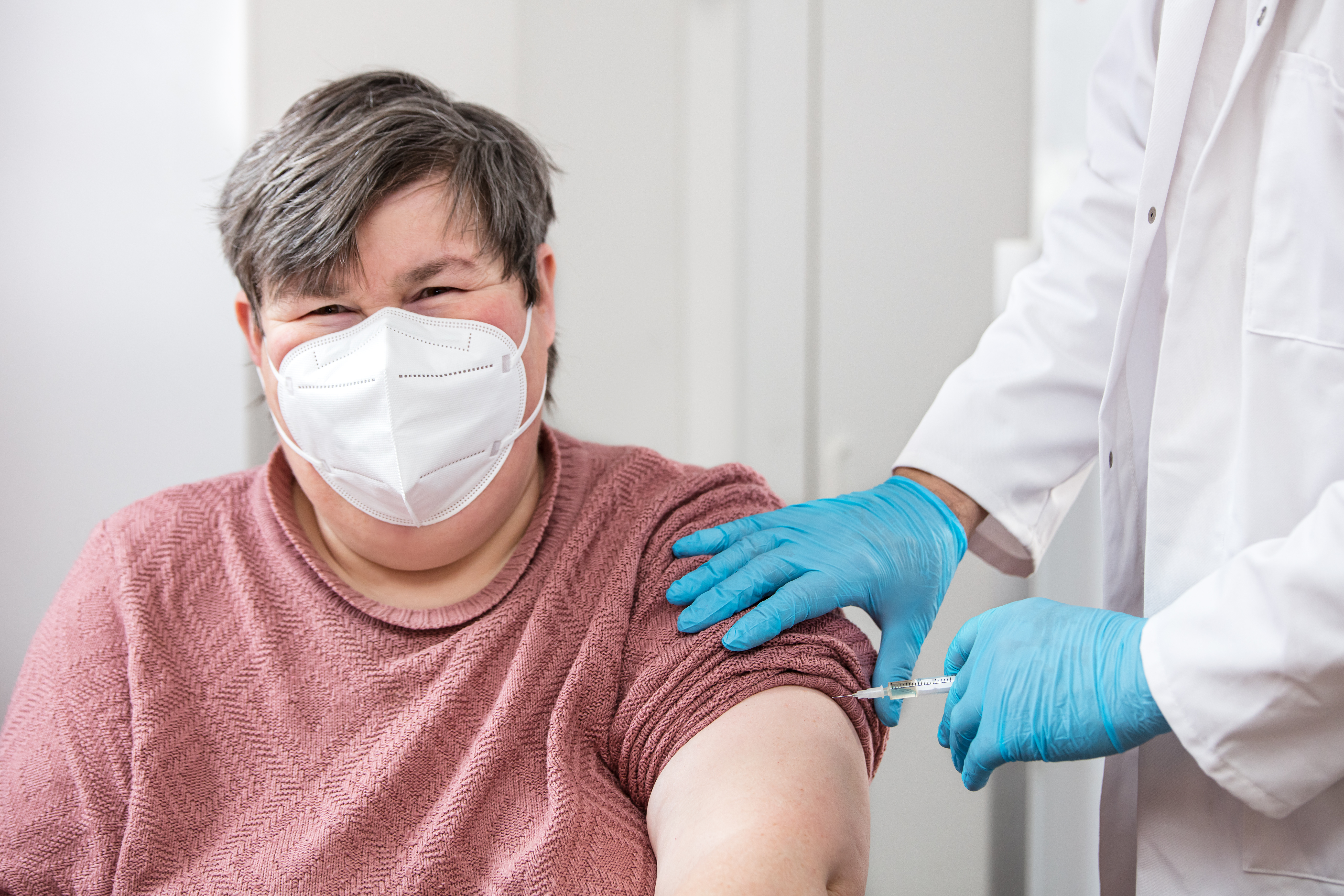 Welcome to 2022, where we are learning to live with and lean into developing a new sense of normalcy as we realize COVID-19 and its variants are still here without any indication of ever going away.
Welcome to 2022, where we are learning to live with and lean into developing a new sense of normalcy as we realize COVID-19 and its variants are still here without any indication of ever going away.
Georgia has made some progress but is still behind the national average regarding persons who are partially or fully vaccinated. Fifty percent of Georgians are considered fully vaccinated, meaning they have received at least two doses of the Pfizer or Moderna vaccines or one dose of the Johnson and Johnson vaccine. Sixty-two percent of Georgians have received at least one dose of the vaccine. A good indicator to assess how Georgia is doing with COVID-19 infections and its impact on the state is to look at the capacity status of hospitals around the state. Knowing what ICUs, ERs, and hospital-wide bed availability is, along with staffing, helps give relevance to the overall picture of the community’s response. As surges continue to go up and down, it can be hard to keep up with hospital visitation or family presence policies. Partners at the Georgia Advocacy Office (GAO) helped compile a list of the larger hospital systems around the state and provided a link to their visitation policies. This resource maximizes community members’ time by minimizing the amount of navigation needed to access hospital visitation policies.
Partnership and Collaboration
The DD Network still meets twice a month to debrief on what organizations are focusing on regarding COVID-19 and how to continue to support each other without duplicating efforts. There is unanimous support to continue providing education and information on ways for individuals to be self-advocates and do what is best to protect themselves. The Network continues to encourage the use of personal protective equipment (PPE), washing hands with soap and water often, and social distancing (maintaining six feet apart) from people who don’t live with you.
One of our partners, Susan Tharpe, Disability Preparedness Specialist with the Georgia Department of Public Health is seeking feedback on individuals and families with intellectual and developmental disabilities involvement or inclusion in planning and preparing during the initial and ongoing COVID-19 response.
Testing and Vaccinations
Testing and vaccinations are still available. Children 5-11 years old can be vaccinated. A third shot, also known as a booster, is available for individuals 12 years old and older. You can visit the Georgia Department of Public Health’s website for locations of testing, vaccination sites, and how to get the vaccine if a person is unable to leave their home (homebound).
Free over-the-counter rapid antigen testing home kits are now available. The U.S. government is providing up to four home test kits per household. To order visit https://www.covidtests.gov/ or call 1-800-232-0233. The Department of Health and Human Services is working with manufacturers on the accessibility of results for home test kits. Efforts are being made to ensure individuals that are blind or visually impaired can properly administer and interpret the results.
Go to the Georgia Department of Public Health COVID-19 Resources website to stay up to date on COVID-19 resources.

Welcome to GCDD
![]() The Georgia Council on Developmental Disabilities (GCDD) awarded funding for nine projects in January during the first of two grant cycles anticipated this year. Every year, GCDD’s Council members award grant funding for projects throughout Georgia and makes funds available to fulfill its mission in accordance with the Developmental Disabilities Bill of Rights and Assistance and its Five-Year Strategic Plan.
The Georgia Council on Developmental Disabilities (GCDD) awarded funding for nine projects in January during the first of two grant cycles anticipated this year. Every year, GCDD’s Council members award grant funding for projects throughout Georgia and makes funds available to fulfill its mission in accordance with the Developmental Disabilities Bill of Rights and Assistance and its Five-Year Strategic Plan.
Through its grant making, GCDD partners with public, private, and nonprofit entities to improve the lives of people with developmental disabilities and their families. GCDD grants serve to expand best practices and contribute to system-wide changes that support the rights of people with developmental disabilities and their full inclusion as community members. Recipients of GCDD grants are expected to be ongoing partners bringing about change resulting from the impact of their work. Grant initiatives funded in this grant cycle included marketing and communications, data and policy research, education, coalition development, and self-advocacy.
Nine organizations were awarded grants in GCDD’s first round of funding. Sangha Unity Network was awarded the Advocates for Change Training by Self Advocates grant to develop a comprehensive plan for the growth of self-advocacy in Georgia. Georgia State University’s Center for Leadership in Disability (CLD) was awarded the Support New Leaders Representation for All grant to develop a robust network of new young leaders in Georgia that are ready to be involved and mentored in the disability community. The Institute for Human Development and Disability at the University of Georgia (UGA) Research Foundation was awarded the End 14C Coalition grant to see an advocacy coalition develop that is meaningfully engaged in organizing at the grassroots and state levels to advocate for needed regulatory, legislative, and policy changes to ensure the phased ending of 14c subminimum wage practices in Georgia.
Georgians for a Healthy Future was awarded the Data and Policy Research Grants: Housing for Georgians with developmental disabilities grant. This is a research project established to support the collection and analysis of data that will provide Council, advocates, and policymakers with objective analysis and conclusions that promote systemic change and build capacity to improve services and supports for people with developmental disabilities and their families. Georgia Options and the University of Georgia’s Institute on Human Development and Disability were both awarded the DSP Innovation Fund grant allowing the submission of innovative pilots proposed for impacting the shortage of direct service professionals. Claritas Creative, LLC, was awarded a grant to manage GCDD’s communications platforms and awarded the Coalition of Family Advocates grant to build a strong coalition of family advocates within Georgia. Crimminz Associates was awarded the Inclusive Post Secondary Allocation Formula Consultant grant to develop an equitable and adaptable funding formula for Georgia’s inclusive post secondary education (IPSE) programs using the state’s yearly budgetary allocation.
GCDD’s programs and grants management team assists grantees in ensuring the success of their projects while also overseeing project performance, administration, and compliance. For more information on how respond to a GCDD Notice of Funding available, visit www.gcdd.org/funding-opportunities/nofas.

Inclusive Post Secondary Education (IPSE): Changing Lives through Education
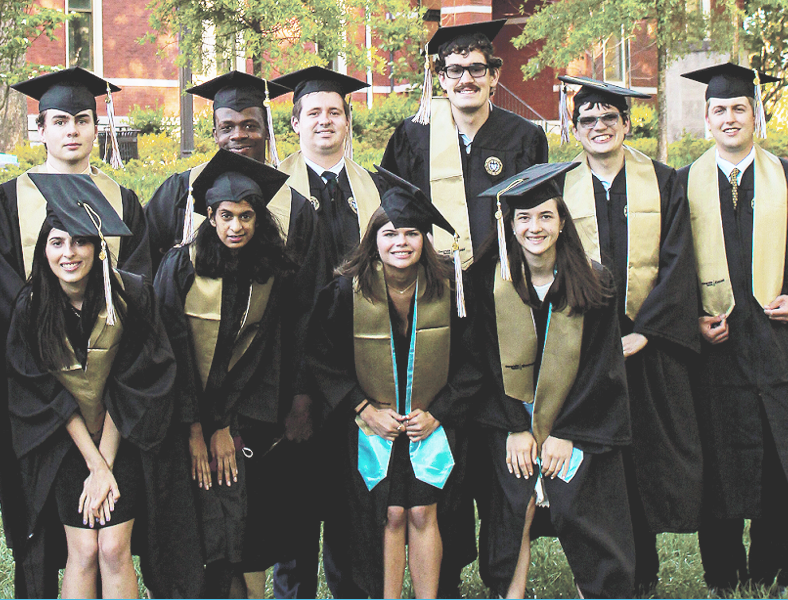 Georgia Council on Developmental Disabilities has released a new video showing the inclusive post secondary education (IPSE) programs in Georgia, what they have to offer, and the life-changing effects it has on their students, graduates, and communities. The students and graduates shown in this seven-and-a-half-minute video are excellent examples of how IPSE programs help young people with intellectual/developmental disabilities (I/DD) grow, learn, and succeed alongside their peers. College provides a variety of experiences and opportunities for students with I/DD for growth as they prepare for the next chapter of their lives. Transition planning should include college and begin as early as possible during their middle and high school years.
Georgia Council on Developmental Disabilities has released a new video showing the inclusive post secondary education (IPSE) programs in Georgia, what they have to offer, and the life-changing effects it has on their students, graduates, and communities. The students and graduates shown in this seven-and-a-half-minute video are excellent examples of how IPSE programs help young people with intellectual/developmental disabilities (I/DD) grow, learn, and succeed alongside their peers. College provides a variety of experiences and opportunities for students with I/DD for growth as they prepare for the next chapter of their lives. Transition planning should include college and begin as early as possible during their middle and high school years.
Through IPSE, a concept that has been around for 10–15 years, students with I/DD are able to reach their dream of continuing their studies in a university or college setting. The eight IPSE programs in Georgia are Kennesaw State University Academy for Inclusive Learning and Social Growth, Columbus State University’s GOALS, East Georgia State College’s CHOICE, Georgia Institute of Technology’s EXCEL, Albany Technical College’s LEAP, University of Georgia’s Destination Dawgs, Georgia State University’s IDEAL, Georgia Southern University’s EAGLE Academy, and coming soon, Georgia College and State University’s THRIVE. For more information on IPSE in Georgia, visit GAIPSEC.org.

March is Developmental Disabilities Awareness Month
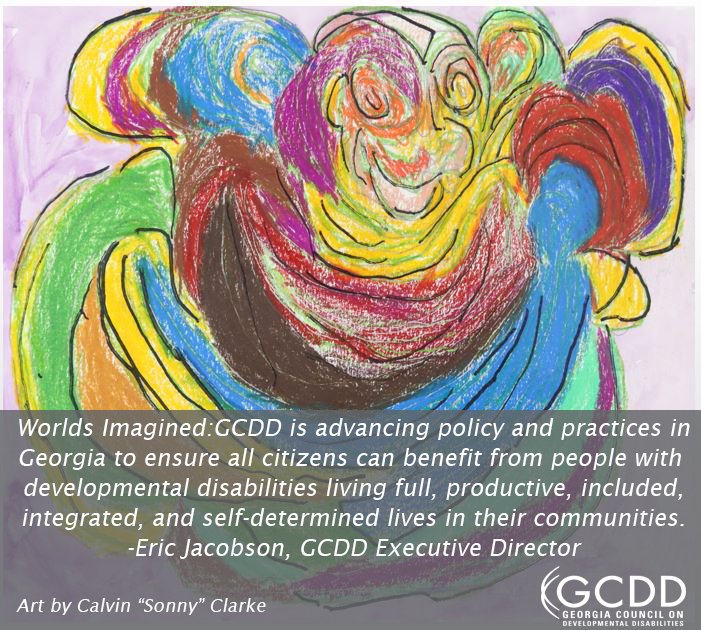
The Georgia Council on Developmental Disabilities (GCDD) is proud to recognize March as Developmental Disabilities Awareness Month (DDAM). This year’s theme is “Worlds Imagined: GCDD is advancing policy and practices in Georgia to ensure all citizens can benefit from people with developmental disabilities living full, productive, included, integrated, and self-determined lives in their communities.” The goal for this month is to create awareness about developmental disabilities, teach the importance of inclusion within every aspect of life, and to share the stories of individuals with disabilities to show that a fulfilling and successful life is possible. GCDD’s role is to advocate for and support work that ensures all Georgians with Developmental Disabilities can have a life well lived. The focal points of DDAM this year are inclusion, contributions, and togetherness. We want you to spread the word and share your stories on social media (Facebook and Twitter). DDAM is also about people with and without developmental disabilities sharing their stores about living alongside each other.
How can you raise #DDAwareness? Each week during the month of March has a main theme focus:
February 28th – March 4th: Worlds Imagined
March 7th – March 11th: Change Imagined
March 14th – March 18th: Support Imagined
March 21st – March 25th: Skills Imagined
March 28th – April 1st: Hope Imagined
Post and share on social media your photos, videos, and stories about what’s going on in your life. We encourage you to also expand your network and reach out to your legislators, businesses, schools, your local media, diverse communities, and more.
You can also join us on GCDD’s last virtual Advocacy Day on March 16, 2022, to educate and inform our lawmakers about Advancing Employment for people with developmental disabilities. To register for Advocacy Day three, click here.
Throughout March, GCDD will post weekly action items on this webpage and on our Facebook and Twitter accounts to raise awareness of the voice of the disability community.
Share your support of National Developmental Disabilities Awareness Month on social media with the hashtag #DDAwareness2022, #DDAM2022, #WorldsImagined, #GCDDAdvocates.


Virtual Advoc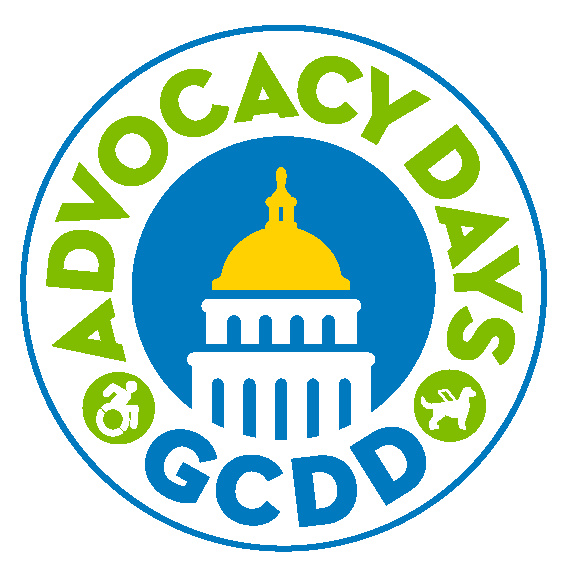 acy Day #3 from 10:00 a.m. to 1:00 p.m.
acy Day #3 from 10:00 a.m. to 1:00 p.m.
Mark your calendars! GCDD’s Advocacy Day Three is scheduled for Wednesday, March 16th from 10:00am to 1:00pm. We will be focusing on advancing employment for people with developmental disabilities and learning how to connect with your state legislators.
Register for the 2022 Advocacy Days

Did you enjoy the e-newsletter?
Tags: GCDD, Developmental Disabilities, enews, newsletter
